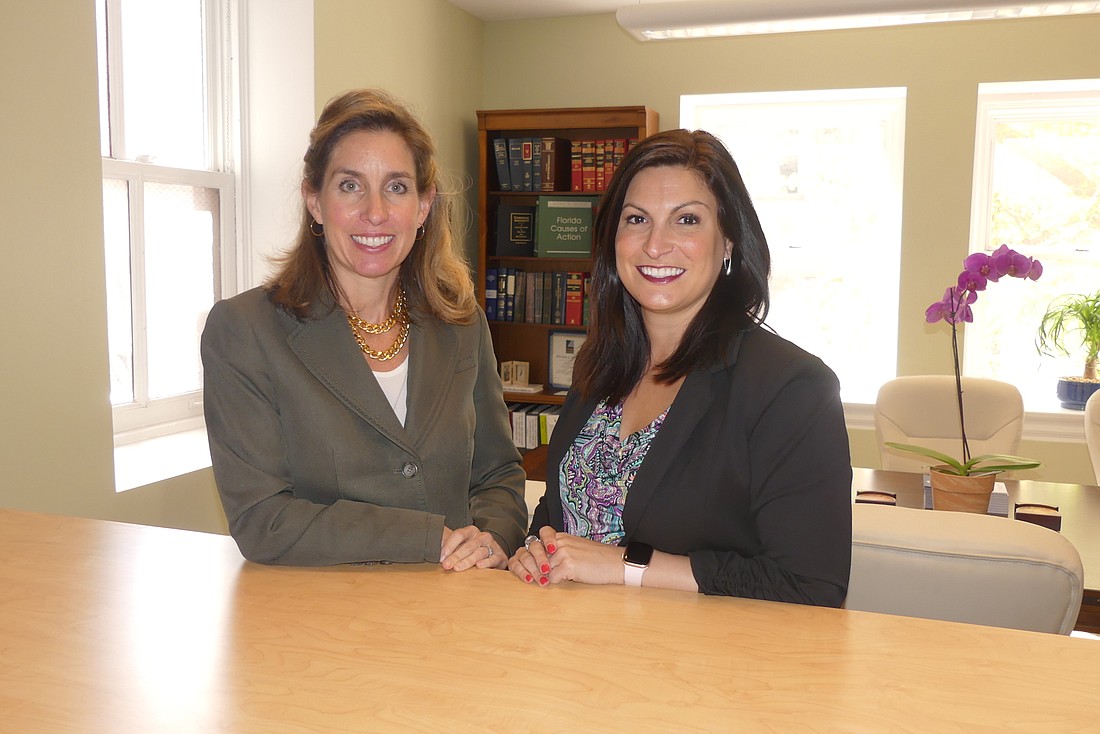
After almost 20 years focusing her practice on labor and employment law, attorney Kirsten Doolittle has transitioned from litigation to investigation of workplace misconduct complaints.
The Law Office of Kirsten Doolittle PA in the historic Elks Building Downtown is now Aequitas Counsel.
Aequitas, from the Latin aequitatis, refers to the concept of justice, fairness and equality.
“Our duty is to provide a fair, thorough and prompt investigation,” Doolittle said.
“We interview personnel, review data, work with the employee, investigate and render written findings as to whether alleged misconduct occurred.
“I’ve always wanted to be in the front end of a problem and you can’t do that as a litigator.”
She was board-certified in labor and employment law by The Florida Bar in 2018.
Doolittle also is a Florida Supreme Court Certified Circuit Civil Mediator and a qualified arbitrator.
The firm’s clients are small businesses and corporations as well as colleges and universities that receive federal funding and therefore are subject to Title IX regulations prohibiting discrimination based on gender.
Federal and state laws prohibit discrimination based on race, color, gender, religion, national origin or disability.
Companies with 15 or more employees are subject to Title VII of the federal Civil Rights Act, the Florida Civil Rights Act and the Americans with Disabilities Act.
Companies with 20 or more employees also are subject to the Age Discrimination in Employment Act, which prohibits harassment of employees who are 40 or older on the basis of age.
Even if a company doesn’t meet the minimum number of employees threshold, there are other federal statutes that may allow an employee to bring suit for race discrimination.
An employer should investigate a complaint of discrimination or harassment, Doolittle said, regardless of the number of employees it has.
Companies may be sued for common law claims of negligent supervision or negligent retention if a complaint is not investigated and someone is harmed.
Aequitas Counsel is a “different business model” compared to her years of representing mostly plaintiffs in civil rights actions, Doolittle said.
She said even though employers aren’t required to use a third-party investigator when there is a complaint, there can be benefits.
A neutral, unbiased fact-finder can test the responses of interested parties without fear of retaliation and employees are given a sense of confidence that the employer is taking their complaint seriously, she said.
In addition, while the relationship between Doolittle and her staff and their client is protected under attorney-client privilege, using a third-party investigator preserves the confidential relationship between the employer and its in-house counsel.
“When an in-house counsel conducts the investigation, they can sometimes be subject to deposition later on,” Doolittle said.
“We serve as a neutral investigator, representing a company or school that’s required to conduct an investigation,” Doolittle said.
That doesn’t mean she doesn’t draw on her experience, particularly when she’s evaluating an investigation that’s already underway.
“As a plaintiff’s lawyer, I know exactly what to look for,” she said.
The new business model was motivated by the public’s increased awareness of harassment caused by the #metoo movement and by publicity related to charges leveled against college students that later were determined to have been unfounded, Doolittle said.
“Very few people are doing this work and even fewer have the right skills to do it in a fair and unbiased way,” said Doolittle.
“There are very few firms like this in the Southeast. There’s plenty of work – unfortunately – but the work has to be done the right way,” she said.